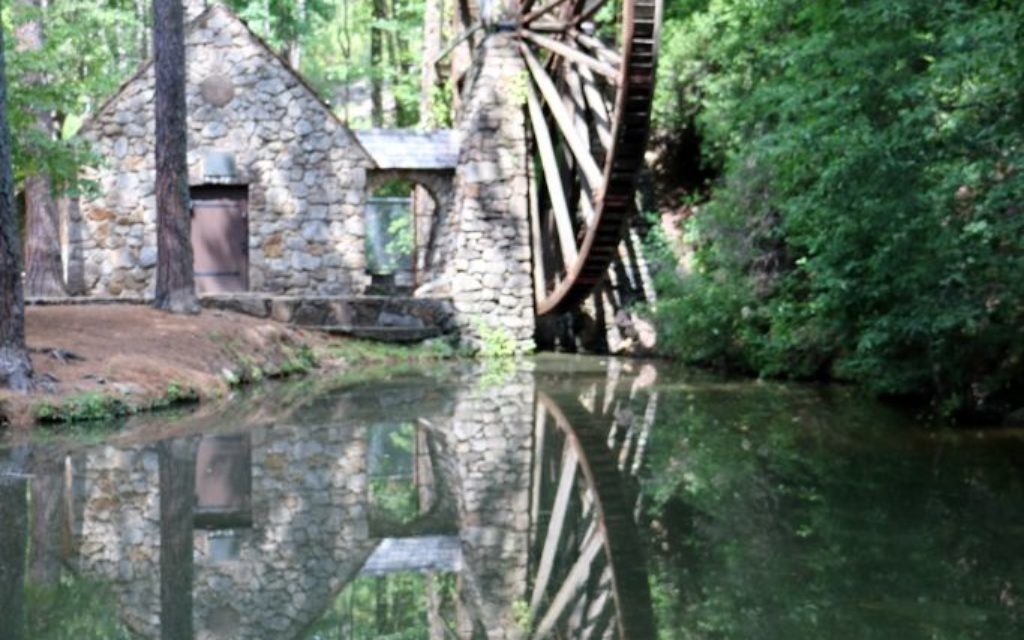How to Prepare for Effective College Interviews
Sitting down with an admissions officer or alum is a chance to demonstrate interest and get answers.

“I just completed my essays after many drafts. Isn’t that enough?” a future college student said.
“Didn’t you know that one of the colleges you want to attend stated on their website that an interview is not required but optional?” the student’s school counselor replied.
Optional gives you the opportunity to add much to your application. Why waste that chance?
Get The AJT Newsletter by email and never miss our top stories Free Sign Up
There are two times a student can let a college learn more about the student: the dreaded essay and the interview.
In addition, some scholarships and honors programs require an interview.
The thought of an interview may be scary or cause nervousness. After all, students usually don’t have a lot of interviewing experience.
But I encourage interviews of clients all the time. That is why we practice with simulation interviews.
After the practice interviews and the real thing, a student usually gives me feedback that the actual interview was easier than the practice. That is great.
Through an interview, a student shifts from being a transcript, scores and recommendations to becoming a real person to admissions personnel. And the college interviewer becomes someone who can respond to the student’s questions over time, knowing who the student is.
Moreover, the student can ask some good questions at the interview and learn more about the college while impressing the interviewer.
Interviews could be with an admissions officer at the college, a student working in the admissions office or an alum in your area.
What type of colleges really want to meet the student? Chances are that private, liberal arts colleges love interviews, but not so much for big state universities — there is only so much time a public university has for individual interviews.
Of course, when you schedule an interview, the college knows you are interested in the school. Demonstrated interest is important. If you live in Georgia and the private, liberal arts college is in California, the admissions office knows that an interview on campus is difficult and will not hold it against you if you can’t arrange it. But an alum in your area might be available for an interview.
Naturally, when you have an interview on campus, you will schedule a campus tour. I addressed college visits in a recent AJT article.
Schedule an interview for the summer after your junior year or the fall of your senior year. Don’t try to schedule your interview the next week.
Slots fill up fast for popular colleges. If the college responds that all slots of senior applicants are filled, just realize that you weren’t ahead of the rest of the applicants. You missed the flight; the doors of the plane closed.
Much of the above holds true for honors programs, such as the Governor’s Honors Program in Georgia. The letter to students who make it to the interview stage offers general tips.
Know what to expect and be prepared. Get a good night’s sleep, plan to arrive 20 to 30 minutes early, dress neatly and appropriately, read up on your subject (such as math) outside class, be yourself and have a conversation with your interviewer. Don’t answer questions with yes-or-no responses.
Certain other items are important. Shake hands, but don’t shake like your hand is falling off. Sit up straight without folding your arms. Look the interviewer in the eye. Lean forward to show interest, and don’t fidget.
Make sure you ask for a business card at the interview.
After the interview, send a thank-you note to the interviewer. Add a couple of sentences regarding how the interview helped you learn more about the college and your hope that the interviewer learned more about you and your interest in the college.
Did I mention being on time? You never know what traffic will bring or whether you’ll have trouble finding a parking space. Sometimes, admissions has parking available for scheduled visitors. You will feel important if a parking space has your name welcoming you to campus.
Arriving early is fine. You can relax knowing that you reached the campus.
Don’t walk into the interview chewing gum or dressed for the beach after the interview. This is serious business.
Use practice questions before the real interview. Tape your practice answers and listen to yourself. Or have a parent listen to your answers. Of course, you can make a video of a mock session and watch yourself.
What types of questions are asked at interviews? What questions might the student ask the interviewer? My next column will address those topics.
Mark L. Fisher is a college and career consultant at Fisher Educational Consultants (www.fishereducationalconsultants.com) and a consultant for the College Planning Institute (www.GotoCPI.com).




comments